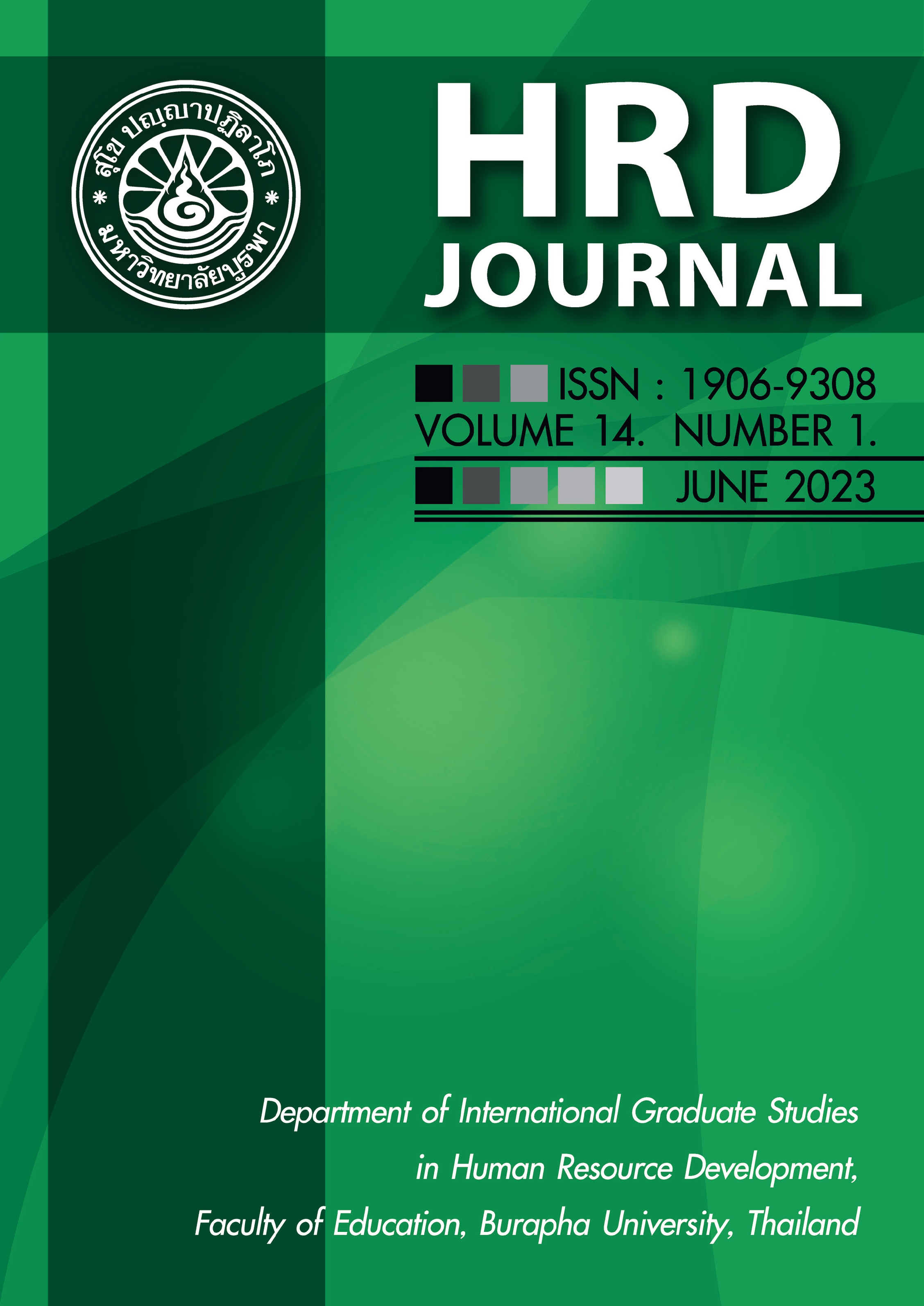Implementing Augmented Reality to Promote English Oral Production, Interaction, and Engagement of Thai EFL Students
Keywords:
Augmented Reality, Motivation, Engagement, Task-based learningAbstract
The COVID-19 pandemic had an impact on the EFL classroom. Teachers struggle to provide an online lesson that allows students to practice their content, interact with specific English language usage characteristics, and develop English language proficiency. This study demonstrates the use of EFL course content and augmented reality (AR) technology to improve Thai EFL students’ learning achievement and virtual learning experience via computer-generated perceptual interactive experiences across multiple sensory modalities. The participants are 34 undergraduate students from one university in Bangkok, Thailand, majoring in Classical Thai Dance. The twelve lessons were adapted from an online class that included AR. Using a questionnaire, pre-test and post-test, and observation, the researcher used a mixed-methods research design to investigate the effectiveness of the instruction, learning achievement, and participants’ stages of interaction and self-adjustment toward implementing AR. This study, in particular, provides an account of the student-centered re-design of EFL instruction during the ‘new normal in order to achieve learning outcomes and provide a supportive learning experience for students. To assess students’ performance in English classes using an AR application, English learning lesson plans with an AR application were designed and implemented in the English classroom. Thirty students were chosen for participation using purposive sampling. Observation, pre-test/post-test, and a questionnaire were used to collect data. According to the findings of this study, Augmented Reality learning activities combined with a Task-based learning approach encourage students to participate in activities and improve student motivation in language learning. As a result, increased motivation boosts language achievement.
References
Bryman, A. (2006). Paradigm Peace and the Implications for Quality International Journal of Social Research Methodology
Creswell, J.W. , & Tashakkori, A. (2007). Developing publishable mixed methods manuscripts. Journal of Mixed Methods Research, 1, 107-111.
Godwin-Jones, R. (2016). Augmented Reality and language learning: From annotated vocabulary to place-based mobile games. Language Learning & Technology, 20(3), 9–19.
Gonzàlez-Lloret & L. Ortega (2014). Technology-mediated TBLT: Researching technology and tasks (pp. 1-22). Amsterdam, The Netherlands: John Benjamins Publishing Company.
Hawkinson, E. (2018) Augmented Tourism: Definitions and Design Principles. Invention Journal of Research Technology in Engineering & Management, 2(9), 33-39.
Lee, K. (2012). Augmented Reality in education and training. TechTrends, 56(2), 403-410.
Liu, TY (2009). A context-aware ubiquitous learning environment for language listening and speaking. J Comput Assist Learn 25(6):515–527.
Mitchell, R. (2011). Alien contact: Exploring teacher implementation of an augmented reality curricular unit. Journal of Computers in Mathematics and Science Teaching.
Milgram, P., and Kishino, F., (1994), “A taxonomy of mixed reality visual displays,” IEICE Transactions on Information Systems, vol. E77–D, no. 12, pp. 1–15.
Ramya, G., & Madhumathi, P. (2017). Adopting Augmented Reality for English Language Teaching and Learning. Language in India, 17(7).
Willis, J. & D. Willis (2001), “Task-based language learning.” In R. Carter and D. Nunan (Eds), The Cambridge Guide to Teaching English to Speakers of Other Languages.
Wu, H., Lee, S., Chang, H., & Liang, J. (2013). Current status, opportunities, and challenges of Augmented Reality in education. Computers & Education 62,41–49.
Wang, H.-Y., Lin, T.-J., Tsai, C.-C., Duh, H. B.-L., & Liang, J.-C. (2012). An Investigation of Students’ Sequential Learning Behavioral Patterns in Mobile CSCL Learning Systems. IEEE 12th International Conference on Advanced Learning Technologies (pp. 53–57). Rome, Italy: IEEE.
Walczak, R., Wojciechowski, & Cellary, W. (2006). Dynamic interactive VR network services for education. in Proc. ACM Symp. Virtual Reality Software and Technology (VRST 2006).
Yuen, C. S. (2011). Augmented Reality (AR) in education. Presentation in Creating Futures through Technology Conference, Biloxi, Mississippi.
Xu, Y., Bolter, J., Macintyre, B., Gandy, M., Deen, S., Schrank, B., Gorbsky, M., White, T., Barba, E., & Radu, I. (2008). BragFish: exploring physical and social interaction in colocated handheld augmented reality games. Proceedings of the 2008 International Conference in Advances on Computer Entertainment Technology - ACE 08, 3-5. Dec., Yokohama, Japan.
Downloads
Published
How to Cite
Issue
Section
License
Copyright (c) 2023 Department of International Graduate Studies in Human Resource Development, Faculty of Education, Burapha University

This work is licensed under a Creative Commons Attribution-NonCommercial-NoDerivatives 4.0 International License.
Copyright@HRD Journal, Burapha University






